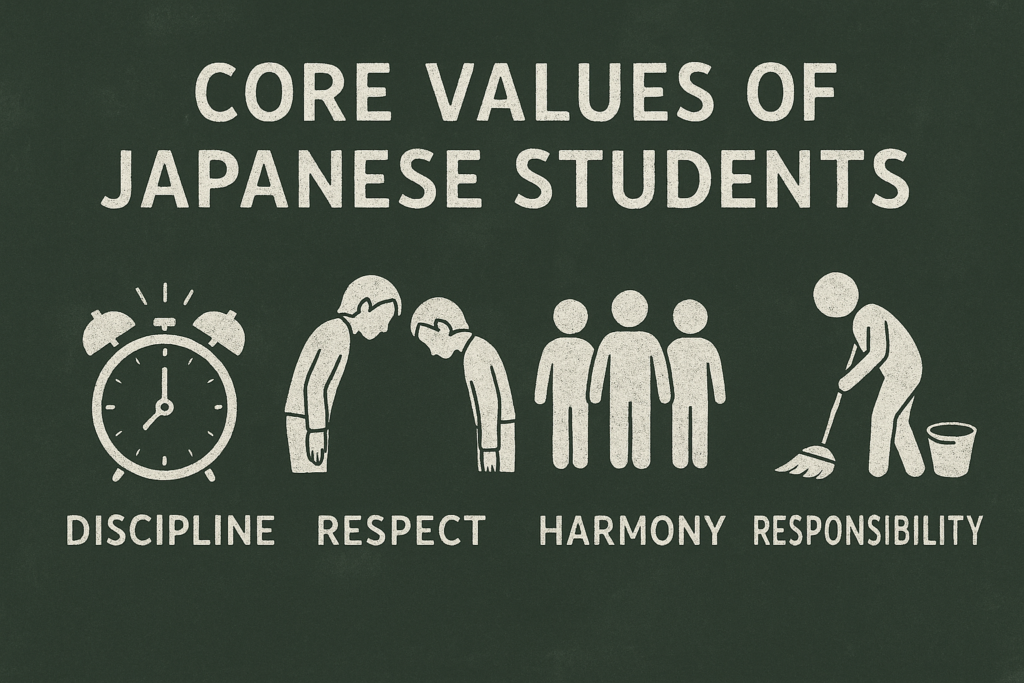Core Values of Japanese Students: Lessons in Discipline, Respect, and Harmony
Japanese students are often admired around the world for their discipline, academic excellence, and sense of social responsibility. These qualities are not accidental—they stem from deeply ingrained cultural values, nurtured from early childhood through home and school. In this post, we explore the core values of Japanese students and the lessons they offer for building a responsible, respectful, and balanced generation.
1. Discipline and Self-Control
One of the most striking characteristics of Japanese students is their discipline. From neatly arranged classrooms to punctuality and consistent homework submissions, discipline is woven into every aspect of student life:
- Students clean their own classrooms, teaching responsibility and teamwork.
- Punctuality is considered a sign of respect for others’ time.
- Uniforms and orderly conduct foster a sense of unity and focus.
2. Respect for Others and Elders
Respect is a foundational value in Japanese society and is strongly instilled in students:
- Students bow to teachers and classmates as a form of greeting and gratitude.
- Disruptive behavior in class is rare because of mutual respect between students and teachers.
- Respect for nature, traditions, and one’s peers is emphasized in lessons and activities.
3. Group Harmony and Teamwork
Japanese students are taught that harmony within the group is more important than individual achievements. This emphasis on collectivism promotes:
- Strong teamwork in group assignments and school projects.
- Shared responsibilities like cleaning, gardening, or preparing meals.
- Less competition and more collaboration in the learning environment.
4. Hard Work and Perseverance
Effort and persistence are highly valued in the Japanese education system. Students are encouraged to work hard and never give up, even if they struggle academically:
- The cultural concept of “ganbaru” (doing one’s best) is emphasized from a young age.
- Students are motivated not just to win, but to grow through effort and resilience.
- Failure is seen as a stepping stone rather than a defeat.
5. Responsibility and Cleanliness
Cleanliness is not just about hygiene; it reflects discipline and community care:
- Daily cleaning routines involve every student, without janitors in most schools.
- Waste is properly sorted, and littering is socially frowned upon.
- Clean environments are believed to promote clear thinking and better learning.
6. Minimalism and Gratitude
Japanese students are taught to appreciate simplicity and be thankful for what they have:
- Lunch is eaten mindfully, often with thanks before and after meals (“Itadakimasu” and “Gochisousama”).
- Minimalism in material possessions encourages students to value experiences and relationships.
- Seasonal activities and cultural festivals foster a sense of belonging and appreciation for tradition.
Conclusion
The core values of Japanese students—discipline, respect, harmony, and responsibility—play a crucial role in shaping their character and future. These values go beyond academics, preparing them to be mindful, empathetic, and socially responsible citizens. There is much to learn from Japan’s education culture in nurturing well-rounded, value-driven individuals in any part of the world.



